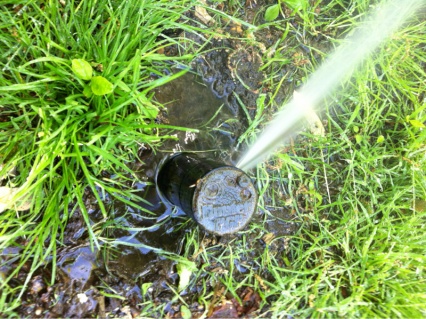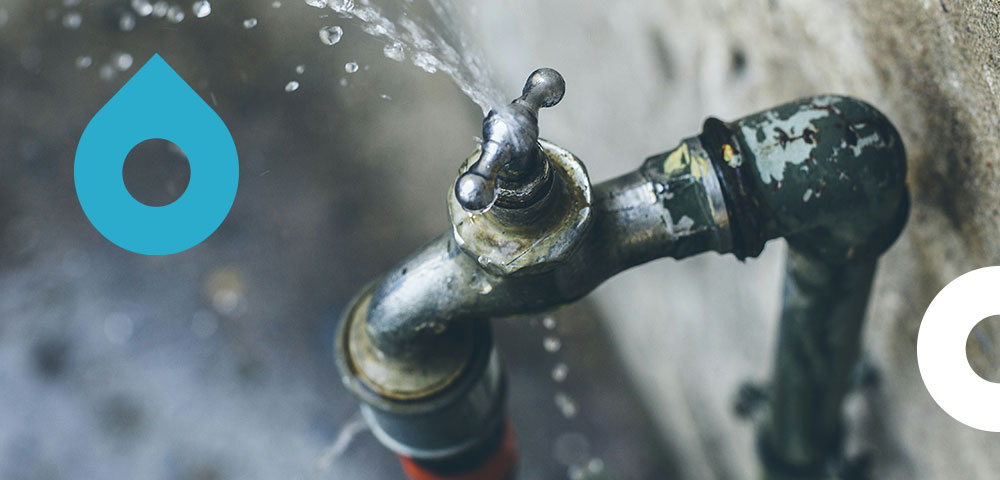5 Regular Water Leak Sources
5 Regular Water Leak Sources
Blog Article
We've stumbled on this post relating to Common Causes of Water Leaks in the Home below on the net and reckoned it made sense to relate it with you over here.

"Be cautious of little expenditures. A small leakage will certainly sink a wonderful ship." - Benjamin Franklin.
He could not have been extra appropriate since water leaks in our homes result in a waste of resources, raising our water expenses. This rise might appear minimal at first, it can lead to significant expenses that can damage your financial institution. Besides a rise in costs, water leakages also cause unwanted organic development, architectural damages, and also also electric dangers.
Finding out if you have a water leakage isn't always easy due to being incapable to see a lot of the pipework in your house. If you have had a boost in your water expenses lately, discovered water stains on walls and ceilings, scented poor smell, etc. You might want to consider requesting plumbing solutions to get it looked into.
There are numerous sources of water leaks, and we have actually assembled the typical factors below. Examine to see if you have had related issues in your house recently.
Blocked drains pipes
Food particles, dirt, and oil can cause stopped up drains pipes as well as obstruct the flow of water in and out of your sink. If undealt with, increased pressure within the rain gutters can create an overflow and end up cracking or bursting pipelines. To avoid blocked drains in your home, we encourage you to avoid putting fragments away and regular cleansing of sinks.
High water pressure
You discovered your house water pressure is higher than common however after that, why should you care? It's out of your control.
It would certainly be best if you cared since your typical water stress ought to be 60 Psi (per square inch) and although your house's plumbing system is made to withstand 80 Psi. A boost in water stress can place a strain on your home pipes as well as cause splits, or even worse, burst pipes. If you ever notice that your residence water pressure is higher than normal, contact an expert about managing it.
Deterioration
As your pipework grows older, it gets weaker and also much more at risk to rust after the frequent flow of water via them, which can eat away at pipes and also cause cracks. A noticeable indicator of corrosion in your home plumbing system is staining and also although this might be hard to find due to most pipes hidden away. We encourage doing a constant appointment every few years and change pipes once they are old to make certain an audio plumbing system
Deteriorated pipe joints
Pipe joints are the components of our plumbing system where the pipes connect. It is important to note that even though pipelines are designed to stand up to stress and last for a while, they weren't created to last for life; therefore, they would degrade over time. An usual indicator of harmed pipeline joints is excessive noise from taps.
Damaged seals
One more root cause of water leakages in residences is damaged seals of residence devices that make use of water, e.g., a dish washer. When such devices are mounted, seals are set up around water ports for simple flow of water via the machine. A busted seal can cause leakage of water when in usage.
With little or no expertise of plumbing, recognizing your home's plumbing system sufficient to take care of a few of these issues (without consequence) can be a headache. Contact plumbing professionals in Pittsburgh, Divine Superintendence, Rochester, as well as environ today, and they'll make those concerns vanish.
He could not have been extra appropriate since water leaks in our homes result in a waste of sources, enhancing our water costs. If you have had a boost in your water bills recently, noticed water discolorations on walls and ceilings, smelt poor smell, and so on. An increase in water stress can place a strain on your home pipes and also lead to splits, or even worse, ruptured pipelines. An additional reason of water leakages in residences is damaged seals of residence devices that make use of water, e.g., a dishwasher. When such devices are installed, seals are set up around water connectors for very easy flow of water via the device.
5 TIPS IN DETECTING A WATER LEAK IN YOUR HOUSE
Water leaks can be hard to find in your home, yet they can be so common. We rely on water every day in our home, which is why a leak can cause big problems. By detecting them early, you can save money and further damage, getting the problem fixed as soon as possible. Here are 5 tips to help you detect a water leak in your home, so you can contact a plumber straight away and get the issue sorted.
Check your water meter
Many people underestimate the value of the water meter in their home. It can be one of the best ways to tell if you have a leak early on, so you can get on top of it before issues start arising. Start by turning off all the water in your home: taps, washing machine, dishwasher, etc. Now take a look at the meter – if it’s still changing with everything turned off, it’s likely you have a fast-flowing leak that you need to get on top of straight away. If nothing changes, then leave your meter for an hour or two and come back to it. Did it change in this time? It’s likely you have a slower leak, which isn’t as urgent but still handy to get fixed so it doesn’t become a bigger problem.
Keep an eye on your bill
Another good way to detect a leak in your home is by keeping an eye on your water bill. It helps if you have a past bill from the same period of time. You can compare like for like and determine whether your water usage has increased significantly. If it has, there may be a leak in your system that you haven’t picked up before. A professional plumber can check through all of your pipes and determine where it is coming from.
Look for damage
If you have a leak inside your home, you will notice damage over time. Take a look at your showers and bathtubs and note whether any of the tiles surrounding the area seem to be discoloured or damaged in any way. There may be water stains, mould or peeling material that has resulted from a build up of moisture over time. Make sure you take a look under sinks at the back of cupboards that don’t get accessed regularly. This is where damage can go unnoticed and build up over periods of time.

As a fervent reader about Reasons for Water Heater Leaks, I think sharing that portion was a smart idea. Are you aware of somebody else who is serious about the niche? Please feel free to share it. Thank you for taking the time to read it.
Facing a flood? Call us! Report this page